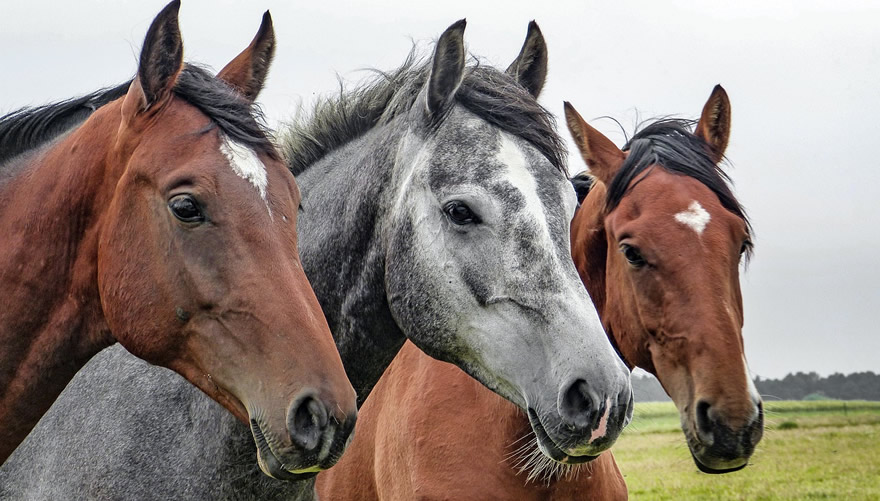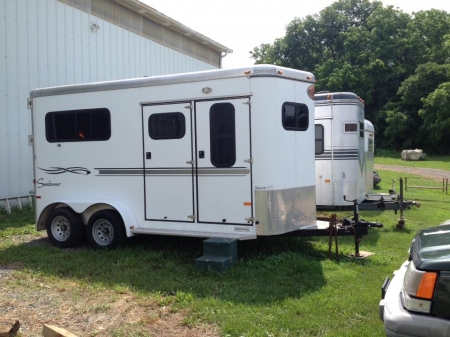Horse Temperament And Temperament Scale Explained

When buying a horse, temperament is an important factor to look for and for an important reason. Horse temperament refers to the general demeanor of the horse. Much like people have a general personality about them, horses tend to have the same and this is determined by a number of factors including the breed, the environment, or even age of the horse. The temperament scale is measured from 1 to 10, with 1 being a very calm demeanor (also referred to as “bombproof”) while a 10 means the horse is very “hot” or hot-blooded and is easily spooked. Sometimes the temperament scale is measured from 1 – 5 but in both cases the lower number refers to a “cool” horse while the higher number refer to a “hot” horse.
Bombproof Personality Traits (Less than 5 on 1 – 10 Scale )
Horses with this personality trait tend to be generally calm, dependable and not easily startled with noise or things happening around them. On the other hand, these horses may seem lazy and would require more pushing to get them going. Horses in this “cool” range are great of beginner riders with little experience horse riding. Once they get going they stay the course. Another interesting fact about calm horses is that they tend to be heavy boned and more muscular than hot or warm-blooded horses. That’s why many of these horses have historically been used for draft or agricultural labor. Horse breeds that are classified in this range include:
- Draft horses: this breed includes the Clydesdale, American Cream, Shire just to name a few. Commonly used in general riding and heavy work and in activities that require a horse to be calm. Draft horses were developed for heavy farm work and have been used in wars to carry heavy guns.
Hot Personality Traits (5+ on 1 – 10 Scale)
Horses with these personality trait tend to be easily spooked and may be harder to get them focused on a task. They may come across as high-strung, anxious or nervous. Since they’re eager to go, these horses are sensitive to the slightest pressure unlike horses with bombproof trait. You should only ride these type of horses if you have some experience and you have a handle on it otherwise it may be a bit rough riding. Horse breeds that are classified in this range include:
- Thoroughbred horses: commonly used in jumping, racing and dressage,
- Arabian horses: commonly used in general and endurance riding,
- Quarter horses: commonly used in dressage, rodeo, and racing
Choosing Your Next Horse
While the scale offers a general perspective when assessing the personality of a horse, it’s important to remember that each horse has its own personality and so when you’re talking to a seller don’t just focus on the number but ask about how it reacts in different solutions. The temperament scale number by itself does not give you the full picture of what to expect. Here are some questions to ask a seller about the horse that will help you gain better picture of what the horse will be like:
- How well does the horse follow a trail?
- Does the horse get up and go without much pressure or dragging?
- Left alone, what does the horse like to do?
- How does the horse respond to loud noise and people?
How To Sell Your Horse Fast
Do you want to sell your horse fast? We've put together a guide to help you understand your options and walk you step by step through the process.






